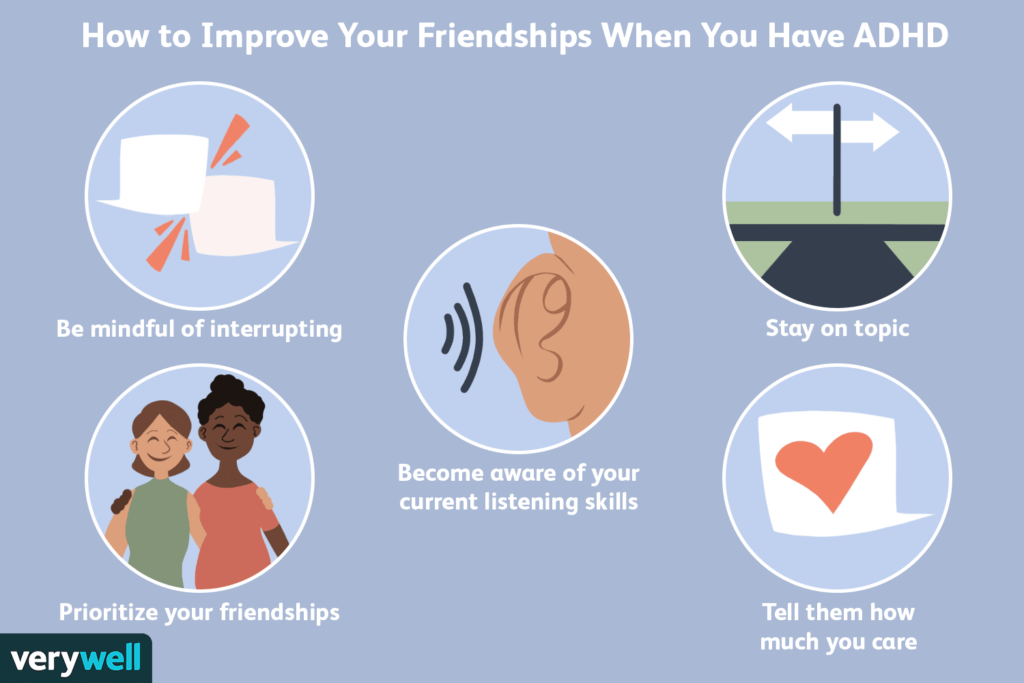Poor physical health impacts social health by limiting activity, causing emotional withdrawal, lowering self-esteem, and increasing loneliness, leading to isolation and strained relationships.
In this article, we will explain how poor physical health may affect your social health, exploring the ways that chronic illness, physical limitations, and pain can influence your ability to connect with others.
Understanding Physical Health and Social Health:

What is Physical Health?
Physical health refers to the body’s overall condition and its ability to function effectively. This includes maintaining a healthy weight, strong muscles and bones, good cardiovascular health, and a well-functioning immune system. Good physical health enables individuals to engage in daily activities, exercise, and socialize without restrictions, contributing to an active, energetic lifestyle and reducing the risk of illness and injury.
What is Social Health?
Social health involves forming and maintaining healthy, supportive relationships with others. It includes positive interactions, strong social networks, and a sense of connection with family, friends, and community. Good social health is crucial for emotional well-being, helping individuals cope with stress and navigate life’s challenges. Engaging in social activities promotes happiness, reduces isolation, and improves overall mental and emotional health.
How Physical Health Affects Social Health:
Physical health affects social health in many ways. When someone is not feeling well physically, it can make it harder for them to engage in social activities. Illness or injury can reduce energy levels, limit mobility, and cause discomfort, which may lead to isolation or withdrawal from social interactions.
Let’s look at some of the key ways poor physical health can affect your social health:
Also read: Can I Buy Food With My Health Pays Rewards Card – Eligible Foods And Shopping Tips!
Limited Participation in Social Activities:
When you are physically unwell, it can be difficult to participate in social events and activities. For example, if you are suffering from chronic pain, fatigue, or mobility issues, you may find it hard to join friends and family for outings, gatherings, or even simple daily activities like walking or shopping. Social interactions often require physical effort, and if your physical health is compromised, you may miss out on these opportunities, leading to feelings of isolation.
- Reduced Social Interaction: Without attending social events or participating in group activities, you may lose valuable opportunities to connect with others.
- Feeling Left Out: Regular absence from social activities may make you feel excluded from social circles or disconnected from people who are important to you.
Low Self-Esteem and Confidence:
Chronic illness or poor physical health can lead to a negative self-image and low self-esteem. When someone feels that their body is not functioning well, they may become self-conscious about their appearance, ability to perform tasks, or how others perceive them. This can result in withdrawal from social situations, as the individual may feel embarrassed or anxious about their physical limitations.
How This Affects Social Health:
- Avoiding Social Situations: People with low self-esteem may choose to stay home rather than risk feeling judged or uncomfortable around others.
- Lack of Confidence in Social Settings: If you’re physically unwell, you may not feel confident in conversations, activities, or group interactions, further damaging your social health.
Impact on Emotional Well-being:
Poor physical health often affects mental and emotional well-being. Chronic pain, fatigue, and other health conditions can lead to feelings of depression, anxiety, or frustration. These emotions can influence your social interactions, making it harder to stay positive and engage with others.
How This Affects Social Health:
- Mood Swings: Physical discomfort can cause irritability and mood changes, which can make social interactions challenging.
- Emotional Withdrawal: Feelings of sadness or anxiety can lead to social withdrawal, where you may not want to engage with others due to lack of energy or emotional capacity.
Difficulty Maintaining Relationships:

Healthy relationships require effort, communication, and shared activities. Poor physical health can make it harder to maintain close friendships or romantic relationships. For example, if one partner has chronic illness, they may feel like a burden or feel that they are unable to contribute equally to the relationship. This can strain relationships, creating tension and misunderstandings.
How This Affects Social Health:
- Strained Relationships: Physical limitations may cause frustration in relationships, especially if there is a lack of understanding between the person with the health issue and others.
- Less Time for Socializing: Chronic illness may cause you to cancel plans frequently or not attend events, which may frustrate friends or family members who wish to spend time with you.
Increased Feelings of Loneliness:
One of the most profound ways poor physical health can impact social health is by increasing feelings of loneliness. When a person is physically unwell, they may struggle to leave the house or attend social gatherings, leading to isolation. Over time, this isolation can contribute to a deep sense of loneliness, which can further harm both physical and mental health.
How This Affects Social Health:
- Loss of Social Support: Isolation often leads to a lack of emotional and social support, which can make it harder to cope with illness.
- Social Anxiety: Prolonged isolation can lead to social anxiety, making it difficult to re-enter social situations after a period of absence.
Increased Risk of Mental Health Issues:
When someone struggles with poor physical health, the combination of physical discomfort and emotional isolation can significantly increase the risk of developing mental health issues, such as depression or anxiety. These conditions often compound the difficulties of socializing, creating a vicious cycle of worsening health and increased social withdrawal.
How This Affects Social Health:
- Mental Health Stigma: Some individuals may feel ashamed of their mental health struggles, further withdrawing from social interactions or avoiding seeking help.
- Difficulty Maintaining Social Bonds: Depression and anxiety can make it hard to maintain the effort needed to stay connected with friends, family, or colleagues.
Dependency on Others:
Chronic illness or physical health problems may create a reliance on family, friends, or caregivers for support. This dependency can create feelings of guilt, particularly if you feel like a burden to those around you. While support from loved ones is essential, too much dependency can sometimes strain relationships, making it harder to maintain a balanced social life.
How This Affects Social Health:
- Strained Interactions: Feeling like you are constantly asking for help may affect how you interact with others, potentially creating discomfort in the relationship.
- Loss of Independence: Physical health challenges that cause dependency can make you feel less autonomous and less able to participate in social activities independently.
Impact on Social Skills:
When poor physical health limits your ability to participate in social situations, it can also impact your social skills. For example, if you spend long periods alone or have limited interactions with others, you may find it difficult to re-engage in conversations or activities. This can lead to feelings of awkwardness or discomfort when trying to interact with others again.
Also read: What Can I Do With A Health Science Degree – Careers In Health Science!
How This Affects Social Health:
- Decreased Communication Skills: Lack of social interaction can lead to reduced confidence in communication and more difficulty expressing yourself effectively in social situations.
- Fear of Rejection: The longer you avoid social interactions due to poor physical health, the more you may fear rejection or judgment when trying to connect with others again.
The Social Stigma of Illness:
Unfortunately, people with chronic illnesses or poor physical health may face social stigma. Others might make assumptions about their abilities or judge them based on their condition. This can result in negative social interactions and make individuals feel excluded or misunderstood. This stigma can lead to further isolation and difficulty in forming new social connections.
How This Affects Social Health:
- Feeling Judged or Misunderstood: People with chronic health issues may feel others view them negatively or pity them, which can make it harder to build positive relationships.
- Increased Isolation: Fear of being judged or misunderstood may cause someone to withdraw from social situations altogether.
FAQ’S
1. How does poor physical health affect social life?
Poor physical health can limit your participation in social activities and lead to emotional withdrawal. This causes isolation and makes it harder to form or maintain social connections.
2. Can physical illness cause emotional withdrawal?
Yes, physical illness can lead to feelings of anxiety, sadness, or frustration, which may result in emotional withdrawal. This emotional distance makes social interactions more challenging and less frequent.
3. How does poor health impact relationships?
Poor health can strain relationships by limiting time spent with loved ones and creating frustration due to physical limitations. These challenges can lead to misunderstandings and weakened emotional connections.
4. Does poor health contribute to loneliness?
Chronic illness can lead to isolation, as individuals may struggle to attend social events or engage in daily activities. Over time, this isolation can lead to increased feelings of loneliness.
5. Can poor physical health affect mental health?
Yes, poor physical health often increases the risk of mental health issues like depression and anxiety. These conditions can exacerbate social withdrawal, making it difficult to engage with others.
Conclusion
Poor physical health can negatively impact social health by limiting participation in activities, leading to emotional withdrawal and loneliness. This isolation can strain relationships and harm self-esteem, further affecting both mental and physical well-being. Addressing physical health issues is essential for improving social connections, boosting self-confidence, and supporting long-term emotional health, helping individuals maintain stronger, more meaningful relationships.




